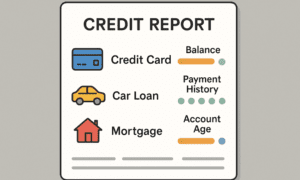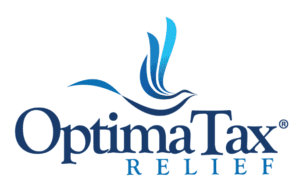The AI productivity revolution promised to eliminate the need for human assistants. Automated scheduling. AI-drafted emails. Smart task management. For tech founders drowning in operational work, it seemed like the perfect solution.
Two years into the AI productivity boom, something unexpected is happening. The most successful founders aren’t choosing between AI tools and human support. They’re combining both – and seeing results neither approach could deliver alone.
The AI-Only Experiment
When ChatGPT and similar tools emerged, tech founders jumped on board. Finally, a way to automate the administrative chaos without hiring anyone. AI could draft emails, summarize meetings, manage calendars, and handle routine communications.
The initial results looked promising. Founders reported saving 5-10 hours weekly on routine tasks. Email response times dropped. Meeting notes appeared automatically. The efficiency gains felt revolutionary.
Then the cracks started showing.
Where AI Falls Short in Executive Support
AI productivity tools excel at pattern recognition and repetitive tasks. They struggle with everything else – and “everything else” defines most of executive work.
Consider calendar management. AI scheduling tools can find available time slots and send invitations. But they can’t determine that this investor meeting deserves 90 minutes instead of the standard 30, or that these two calls should be separated by preparation time, or that Thursday afternoons are when this founder does their best strategic thinking.
These decisions require understanding the person, their priorities, their working style, and the broader business context. No algorithm captures that complexity.
The same limitation appears across executive support functions:
Email Management: AI can draft responses and categorize messages. It can’t recognize which relationships need nurturing, which opportunities deserve immediate attention, or when a phone call would be more appropriate than any written response.
Project Coordination: AI can track tasks and deadlines. It can’t anticipate bottlenecks, recognize when team members are overwhelmed, or navigate the interpersonal dynamics affecting project progress.
Stakeholder Relations: AI can schedule meetings and send reminders. It can’t build relationships, read subtle cues in communications, or understand the political landscape affecting business decisions.
For tech founders specifically, the AI-only approach creates another problem: decision fatigue. Every AI output requires human review and judgment. Every automation needs oversight. The founder saves time on execution but remains stuck in approval mode.
The Human-AI Hybrid Model
Forward-thinking tech companies discovered a better approach: AI-powered executive assistant services that combine human judgment with AI capabilities.
The model works like this: highly skilled executive assistants use AI tools to eliminate mechanical work – transcription, first-draft writing, data compilation, schedule optimization. But strategic decisions, relationship management, and contextual judgment remain human.
An EA using this approach might leverage AI to draft routine correspondence, then review and personalize each message based on understanding the recipient and relationship dynamics. Or use transcription tools to capture meeting notes, then synthesize the key decisions and action items based on knowing the team dynamics and business priorities.
The combination delivers what neither approach alone can achieve. AI handles the repetitive mechanics that drain time. Humans provide the judgment and context that AI can’t replicate.
Services like virtual assistant agency DonnaPro have built this hybrid model into their core offering. Their executive assistants – all based in the European Union – receive extensive training on AI productivity tools. But they’re hired for their judgment, business acumen, and ability to think strategically, not just their technical proficiency.
Why Tech Founders Need This More Than Others
Tech founders face unique productivity challenges that make human-AI hybrid support particularly valuable:
- Constant context-switching between technical decisions, business strategy, team management, and investor relations – each requiring different thinking modes
- High-stakes communications where tone, timing, and relationship dynamics matter more than generic AI responses
- Proprietary information security that makes many AI tools risky for sensitive company data
- Rapid decision-making in high-ambiguity environments where pattern-based AI struggles
- Relationship capital management with investors, customers, and partners that requires human intuition
AI tools can assist with elements of each task. But they can’t provide the through-line of understanding that connects them. They can’t recognize that the conversation with the lead engineer affects how to frame the investor update, or that customer feedback from the support team should influence the product roadmap discussion.
This is where human support becomes invaluable. An EA who understands the founder’s priorities and business context can use AI strategically while preserving the judgment layer that keeps everything aligned.
The security dimension matters too. Many AI productivity tools process data through external servers. For tech companies handling proprietary code, competitive intelligence, or confidential product roadmaps, this creates unacceptable risks.
A human assistant trained on AI tools can navigate these tradeoffs. They know which tools are appropriate for which information, when to use on-premise solutions versus cloud services, and how to maintain confidentiality while leveraging automation.

The Economics Make Sense
The math on human-AI hybrid support is compelling, especially for tech startups and scale-ups operating on runway.
Hiring a full-time executive assistant in major tech hubs costs £40,000-60,000 annually plus office space, equipment, benefits, and the 1-3 month hiring process. Many early-stage founders don’t need 40 hours of support weekly but desperately need the 10-15 hours that would eliminate their biggest bottlenecks.
Professional executive assistant agency services bridge this gap. They provide experienced, AI-trained EAs on flexible, part-time bases – typically £2,000-3,000 monthly with no long-term commitments. The EA works full-time within the agency but is available to the founder on a part-time schedule.
For tech founders, this model solves multiple problems:
- No hiring process – skip the 1-3 month search and onboarding cycle
- Pre-trained on AI tools – your EA arrives already proficient with modern productivity tools
- Flexible scaling – adjust hours up or down as your needs change
- No single point of failure – agency backup ensures continuous support
- Cost efficiency – pay only for the hours you need, with no overhead costs
The cost comparison becomes even more favorable when factoring in the AI tool subscriptions most founders already pay for. Rather than paying for tools plus managing them yourself, you get someone who leverages those tools strategically on your behalf.
What Effective Human-AI Partnership Looks Like
The distinction between average executive support and exceptional support lies in how the EA operates.
Task-oriented assistants wait for instructions. “Tell me what you need, and I’ll do it.” This creates dependency because every action requires founder input, even if AI handles the mechanics.
Strategic partners anticipate needs and manage outcomes. “I noticed we have three investor calls next week. I’ve used AI to compile our metrics and prepare briefing documents. I’ve also cleared your calendar for prep time and scheduled a team debrief afterward to discuss any feedback.“
The AI tools handled data compilation and document drafting. The human provided the strategic framing, anticipated the preparation needs, and connected the investor conversations to team alignment.
For tech founders, finding EAs who can operate this way proves critical. Generic virtual assistants trained for corporate environments often struggle with startup pace and ambiguity. Specialized providers focusing exclusively on founder support deliver markedly different outcomes because their EAs are trained for high-velocity, high-ambiguity contexts.
Implementation: Getting This Right
Tech founders considering human-AI hybrid support should focus on three factors:
AI Fluency: The EA should already be proficient with major productivity tools – AI writing assistants, transcription services, scheduling automation, project management platforms. Training someone from scratch wastes the time you’re trying to reclaim.
Business Acumen: Look for EAs who understand startup dynamics, not just administrative procedures. They should grasp concepts like runway, product-market fit, and fundraising cycles. This context allows them to prioritize intelligently and make judgment calls aligned with business reality.
Proactive Mindset: The best EAs don’t wait for comprehensive instructions. They identify problems, propose solutions, and move projects forward independently. This requires both confidence and judgment – qualities that separate strategic partners from task-doers.
The onboarding process matters too. Even the best EA needs context on your specific business, priorities, and working style. Invest 2-3 weeks in establishing systems and communication patterns. The upfront time investment pays dividends through months of smooth operation.

The Productivity Multiplier Effect
What tech founders discover after implementing human-AI hybrid support isn’t just time savings. It’s capability multiplication.
When the founder isn’t managing their own calendar, sorting their own email, and coordinating their own meetings, they’re not just saving hours. They’re eliminating the cognitive overhead of those tasks – the context-switching, the decision fatigue, the mental energy drain.
That freed mental capacity redirects to what actually moves the business forward: product decisions, strategic partnerships, team development, and market positioning. The activities that only the founder can do.
When founders implement human-AI hybrid support, they typically see:
- 10-15 hours reclaimed weekly for strategic work
- 60% reduction in decision fatigue from constant task-switching
- Faster response times on critical communications
- Better preparation for high-stakes meetings
- More consistent follow-through on key relationships
This is why many founders describe the impact less as “productivity improvement” and more as “getting their brain back.” The constant background noise of operational management quiets, allowing focus on signal instead of noise.
The Future Is Hybrid
The trajectory is clear. AI capabilities will continue improving. More tasks will become automatable. The bar for what “requires human judgment” will keep rising.
But this doesn’t eliminate the need for human executive support. It elevates it. The most valuable EAs won’t be those who can do everything manually. They’ll be those who can strategically deploy AI while providing the judgment, relationship management, and contextual understanding that algorithms can’t replicate.
For tech founders, this represents a clear competitive advantage. While others debate AI versus humans, the winners are already combining both – gaining the efficiency of automation with the strategic value of human intelligence.
Take the Next Step
If you’re a tech founder still managing your own calendar, sorting your own inbox, and spending evenings on administrative work, you’re not maximizing your impact. The question isn’t whether you’re capable of handling these tasks – obviously you are. The question is whether handling them yourself is the highest-value use of your time.
The future of founder productivity isn’t human or AI. It’s human and AI, working together in ways that amplify what each does best.
Ready to experience what human-AI hybrid support can do for your productivity and focus? Get started with DonnaPro and discover how the right combination of skilled human judgment and AI capability can transform how you work.
About the Author
Filip Pesek is the founder and CEO of DonnaPro, a European virtual assistant agency specializing in AI-enhanced executive support for tech founders. After seven years perfecting delegation systems in his own businesses, Filip founded DonnaPro to provide founders with the strategic support model he wished had existed earlier. His philosophy: “If you don’t have an assistant, you are an assistant.“



































